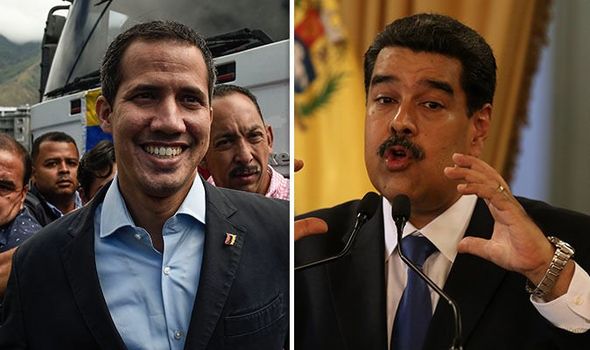RIO DE JANEIRO, BRAZIL – Lawyers for the administration of Venezuelan President Nicolás Maduro and the “ad hoc” administration of opposition leader Juan Guaidó defended Tuesday their respective authority over Venezuela’s gold deposited in the Bank of England, in a precedent-setting case in the United Kingdom.
Nick Vineall, on behalf of the board of the Central Bank of Venezuela (BCV) appointed by Maduro, and Andrew Fulton, representative of the parallel board arranged by Guaidó, presented their arguments on the second day of a trial before the British Supreme Court, the highest judicial instance in the country.
Read also: Check out our coverage on Venezuela
The Supreme, which is analyzing an appeal raised by Guaidó’s side against a previous unfavorable ruling, must rule, on a date to be specified, who the British Executive actually considers as ruler for all purposes in Venezuela -whose BCV board would in principle have power over gold.

If it finally concludes, based on English jurisprudence -and not only on what the London Executive says-, that the leader is Guaidó, the five judges will then have to decide whether to give their political appointments (among them the board) as good, even though they have been invalidated by the Supreme Court in Caracas.
The Supreme’s ruling will eventually serve for the High Court to determine which junta it authorizes to manage the gold, which Maduro is claiming on the grounds of transferring funds to the UN to purchase equipment and medicines against the pandemic.
LONDON SUPPORTS GUAIDÓ
Speaking today, James Eadie, legal advisor to the British Foreign Office, confirmed the “clear and unambiguous” position advanced on Monday that his government recognizes only Guaidó, not Maduro, as head of the state of Venezuela and his powers to act as such.
Contrary to what Maduro’s camp is asking, Eadie urged the court to accept this position based on the so-called “one voice” doctrine – which calls on the powers of the State to act unified in foreign policy – without going into “examining the context” of who actually holds control of the institutions in Venezuela.
Likewise, he considers that the court should not consider the fact that the Venezuelan Justice recognizes neither Guaidó’s status nor his political appointments, which have been annulled.
Fulton, on behalf of the opposition leader, agreed that the English doctrine of Acts of a foreign State obliges the court to consider as “valid and effective”, regardless of whether “they are legal or not”, the appointments of Guaidó on Venezuelan soil, given that he has been recognized head of state by the British Government.
MADURO CHALLENGES THE BRITISH GOVERNMENT
For his part, Nick Vineall, for Maduro’s BCV board, questions the “constitutional status” in this litigation of Guaidó, who in January ceased as president of the Venezuelan National Assembly by not running in the 2020 elections in his country.
The counsel argued that, although the British government has recognized him as head of state, it has not done to head of government because the oppositionist “does not have any control” within Venezuela, so it would not be advisable to leave him in charge of the gold reserves, valued at almost 2 billion dollars.
For example, in his opinion- London’s recognition is confusing, Vineall pointed out that the British government refused to grant diplomatic credentials to Vanessa Neumann, Juan Guaidó’s former ambassador in London, while maintaining ties with Maduro’s representatives.
Eadie, the Foreign Office lawyer, argued that it is not relevant or significant that the Executive continues the relationship “in limited spheres” with the Chavista Administration.
The lawyer for Maduro’s junta warned that handing over gold to Guaidó just because the London Government, for its own geopolitical motivations, has recognized him as Venezuela’s leader could damage the Bank of England and the UK’s reputation as a custodian of foreign assets.
Vineall stressed that if the opposition leader’s “ad hoc” board receives the assets, given that it does not exist as a body on the ground, its transactions will not be properly audited. There will be no guarantee that they are in the best interests of citizens.

